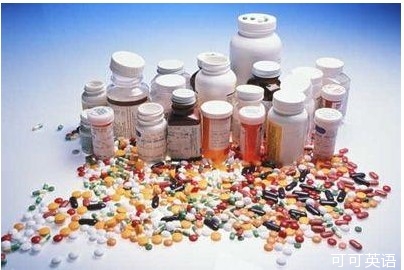
Technology Prevention of cancer Wonder drug
科技 癌癥預防 靈丹妙藥
Aspirin continues to amaze
阿司匹林:繼續給你驚喜
FOR thousands of years aspirin has been humanity's wonder drug.
阿司匹林作為人類的特效藥實際上已存在了數千年。
Extracts from the willow tree have been used for pain relief in folk medicine since the time of the ancient Greeks.
早在古希臘時期,民間就使用柳樹的提取物作為藥物來緩解疼痛。
By 1897 a synthetic derivative (acetyl salicylic acid) of the plant's active ingredient (salicin) was created.
到了1897年,一種取自柳樹的活性成分柳醇(水楊苷)的衍生合成物——乙酰水楊酸誕生了。
This allowed aspirin to become the most widely used medicine in the world.
這使得阿司匹林成為世界上使用最為廣泛的藥物。
In recent years its benefits as a blood-thinning drug have led to it being prescribed in low doses of around 50mg to reduce deaths from stroke and heart attack.
因其具有稀釋血液的作用,近年來醫界已使用50mg左右的低劑量阿司匹林來降低中風和心臟病帶來的死亡危險。
There were also hints that aspirin may help prevent some cancers.
也有消息稱阿司匹林還可預防某些癌癥,
But these were mostly based on observational studies, which can be misleading.
但大多都是基于觀測研究得來的,不可全信。
The gold standard of scientific evidence is the randomised controlled trial, preferably one with a lot of people and held over a long time.
獲得科學證明的最佳標準就是隨機臨床試驗,最好是長期且有大批人參加的。
The results of just such a trial, published in the Lancet, suggest that aspirin is indeed an astonishing drug.
正是這樣一個試驗,發表在Lancet上的結果表明,阿司匹林的確是一種令人稱奇的藥物。
Peter Rothwell at the John Radcliffe Hospital in Oxford and his colleagues looked at deaths due to cancers during and after randomised trials of daily aspirin.
牛津約翰拉德克利夫醫院的Peter Rothwell與其同事們以隨機試驗的方式觀察了罹患癌癥的病人在每日使用阿司匹林期間與其后的狀況。
The trials had actually been started to look at how useful aspirin was for preventing heart attacks and strokes. Nevertheless, the data from the 25,570 patients enrolled in eight trials was also revealing about cancer.
實際上開始試驗的目的是為了查看阿司匹林對于預防心臟病與中風的效果,盡管如此,從25,570名病人身上收集的8個試驗的數據同樣表明了這種藥物對癌癥的作用。
In trials lasting between four and eight years, the patients who had been given aspirin were 21% less likely to die from cancer than those who had been given a placebo.
在長達四年到八年不等的試驗過程中,使用阿司匹林的病人,因癌癥死亡的概率比使用安慰劑的病人要低21%。
These results were based on 674 cancer deaths, so are unlikely to represent the kind of statistical oddity that can beset studies on cancer risks that sometimes create headlines.
這一結果是基于674名罹患癌癥面臨死亡的病人,因而對于那種圍繞研究癌癥風險給人提前判死刑(緩刑)的概率學數據,還不大能拉得上關系。
The benefits of aspirin were also apparent many years after the trials had ended.
阿司匹林的良性作用在試驗結束多年后仍明顯存在于用藥人群身上。
After five years, death rates for all cancers fell by 35% and for gastrointestinal cancers by 54%.
試驗結束五年后,所有癌癥患者的死亡率下降了35%,腸胃癌癥病人更是下降了54%。
A long-term follow-up of patients showed that the 20-year risk of cancer death remained 20% lower in those who had taken aspirin.
一項長期的跟蹤觀察試驗表明,在患有癌癥,并且有20年的"緩刑期"的人群當中,服用阿司匹林的人其死亡率要低20%。
The study revealed that the effect takes time to accrue, so aspirin must be taken over a long period.
這一試驗說明了阿司匹林的藥效需要經過長時間的累積,因此阿司匹林需長期服用才有效果。
The latent period for improving oesophageal, pancreatic, brain and lung cancer was about five years of aspirin taking on a daily basis.
對于食道癌、胰臟癌、腦癌及肺癌,大約需持續5年每日服用阿司匹林才可見效;
For stomach and colorectal cancer the effects took ten years and for prostate cancer about 15 years.
對胃癌、直腸癌,需10年;前列腺癌則需約15年。
The means by which aspirin prevents cancer is not well understood. It is believed that it inhibits an enzyme that promotes cell proliferation in tumours.
阿司匹林預防癌癥的機理現在還不明了,但人們普遍認為,它通過抑制一種有助于癌細胞繁殖的酶而起效。
The researchers also found that small daily doses of aspirin were enough, and that taking more than 75mg conferred no additional benefits.
研究者還發現,每日接受小劑量的阿司匹林就已足夠,超過75毫克并沒有過多的效用。
Those starting on aspirin in their late 40s or 50s benefit most.
而服用者當中,接近50歲或50多歲的人收效最好。
Current guidelines on using aspirin for reducing the chances of a stroke or heart attack rightly warn of the small risk of ulcers and of dangerous bleeding in the stomach.
目前在服用阿司匹林以降低中風或心臟病風險時,用藥說明明確指出了其中存在較低的可能引起潰瘍或危險性胃出血的風險。
These guidelines will probably have to be revised given the new findings.
估計這類說明需要將那些最新發現加上去了。
However, it remains unlikely that popping aspirin will be recommended for everyone like a vitamin supplement.
但是,還是不大可能推薦大家像嗑維生素片一樣嗑阿司匹林。
Aspirin is a highly cost-effective treatment: taking it for five to ten years easily beats initiatives to screen for breast and prostate cancers.
服用阿司匹林是一種高性價比的治療方式:服用阿司匹林五到十年絕對強過定期去做乳腺癌或前列腺癌的儀器檢查。
To put it another way, ask yourself what a pharmaceuticals firm might charge for a drug that would reduce the chance of death by cancer by 20%—and then note that 100 days' supply of low-dose aspirin can cost less than a dollar.
換個說法就是:你想把患癌癥死亡的概率降低20%,只需每日服用低劑量的阿司匹林,而每100天你只需向藥商付不到1美元。
By anyone's measure, that is a bargain.
還有比這更劃算的事嗎?相信對任何人而言,這都再便宜不過了。











